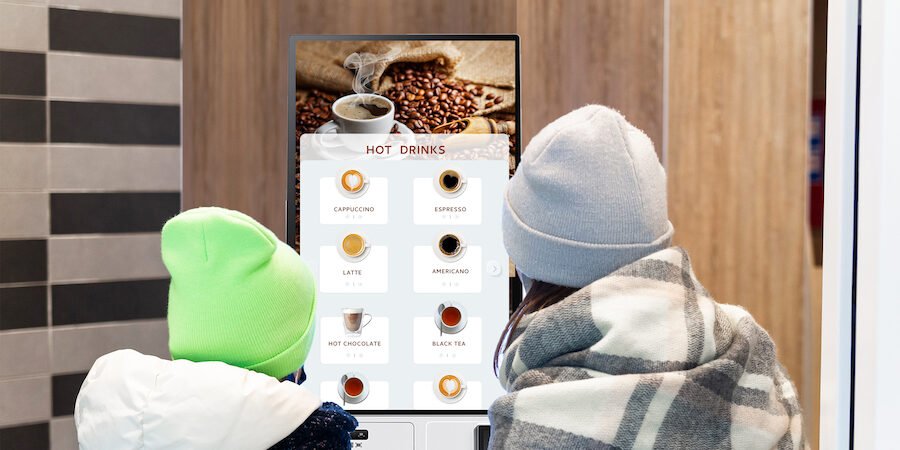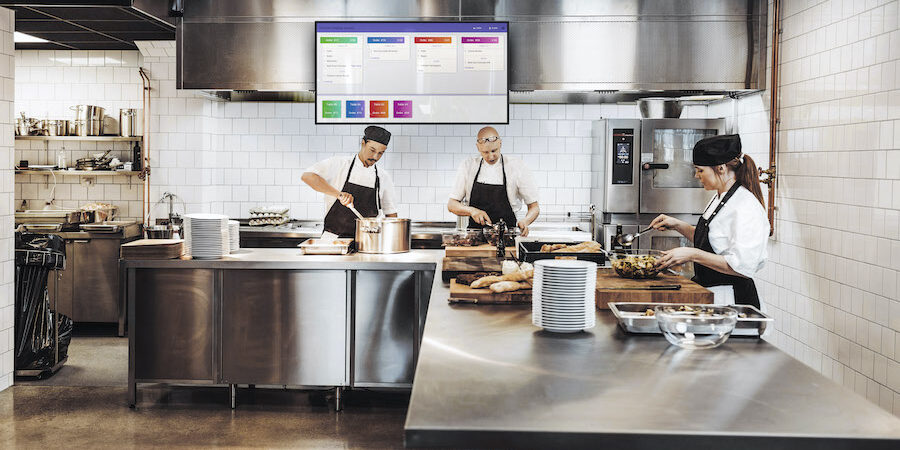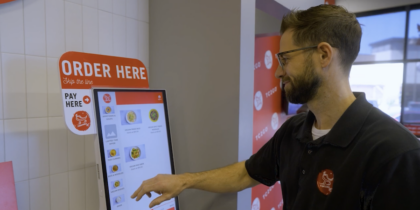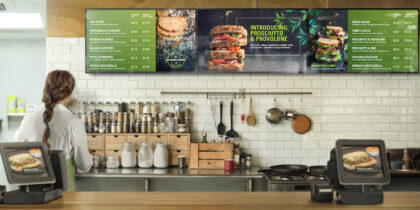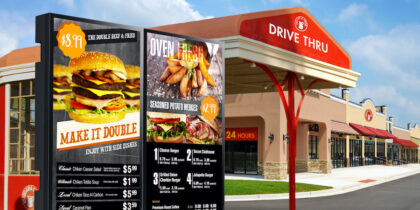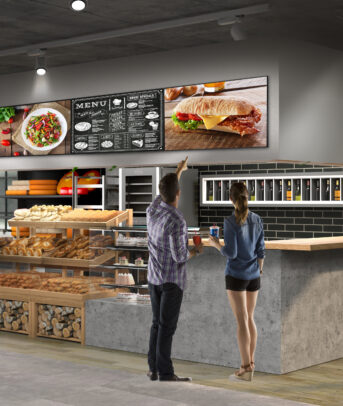Self-service technology has been around for ages: think ATMs, bridal registries and pay-at-the-pump gas station terminals. Today, self-service is woven into the fabric of consumerism and is an increasingly important part of many verticals’ paths to digital transformation. From restaurants to retail, arenas to museums, brands across the board are embracing kiosk trends to reinvent the customer experience.
One reason for this shift is an ongoing labor shortage that spans several industries — particularly retail, restaurants and hospitality. In such a tight labor market, many operators simply can’t find enough workers to meet demand. This meant wage hikes to attract employees, which are difficult for small and mid-sized companies to bear. As a result, kiosk trends are on the rise.
Solutions like Samsung Kiosk can play a key role in business operations, from increasing profitability to meeting customer demand for convenience and personalization.
Self-service technology is functional and profitable
Self-service kiosks address the labor issue head-on in a reasonable, affordable way. First, it reduces or eliminates the need for cashiers, which immediately saves on labor costs and frees up workers to perform other guest-facing duties such as assisting customers or cleaning. All front-of-house employees can relate to the struggle of trying to clean the store while also checking out customers. With kiosks, that’s not a problem.
Elevate your QSR by empowering employees
Explore how key technologies can help QSRs stay competitive and mitigate growing industry problems. Download Now
Just as important as labor savings is the ability to meet customer demand for convenience, efficiency and personalization. Consumers are used to self-service technology now — and many prefer it. Forbes’ 2021 State of Self-Checkout Experiences report revealed that 60 percent of survey respondents prefer self-checkout over cashier-assisted checkout.
Shoppers want interactive experiences that are intuitive and easy to navigate. They also want personalized experiences that feel tailored specifically to them. According to Accenture, 91 percent of consumers say they are more likely to shop with brands that provide offers and recommendations that are relevant to them. Self-service solutions help meet this need for personalization while providing a treasure trove of data and increased ROI.
Who can benefit from a self-service kiosk?
Samsung Kiosk is used in a variety of industries.
Restaurant kiosk systems
Kiosks can solve a variety of challenges for restaurants. Not only do they address the problem of waiting in line, but they can also increase profits. Kiosks never forget to upsell or promote new menu items and limited-time offers (LTOs), which boost basket sizes.
They’re always available, offering a consistent, upbeat experience for guests. They can also tie into the menu board, making it easy to daypart and update content on the fly. In arenas and sports complexes, guests can order and pay from a kiosk in the food court, then walk to the restaurant stall to pick up their food. And in a company cafeteria or break room, diners can scan their own food items and be on their way.
Hospitality self-check-in
If you’ve ever tried to check in to a busy hotel or resort, you know it can take a while — even if you’re part of the loyalty program. Kiosks allow loyal guests to check in with ease, and just like at restaurants, there is a huge opportunity for upsells here.
No one wants to hold up the line if people are waiting, but if given the opportunity to check in at their leisure, guests might add on spa services, breakfast, activities or room upgrades. Kiosks can also be placed in the lobby to assist guests with concierge-related queries such as nearby restaurants, activities and landmarks.
Retail kiosks
Self-service technology can be a lifesaver for busy retail outlets. Not only does it allow shoppers to skip long lines in favor of quickly checking themselves out, but kiosks up the ante on omnichannel shopping and digital-out-of-home (DOOH) advertising. With kiosks, customers can locate products within the store, find product pricing, compare similar models and even order products to be delivered to their homes. If a size or model requested is unavailable, kiosks can help locate a nearby store that has the item in stock.
Micro markets — unmanned retail spaces that offer grab-and-go food and convenience items — are also on the rise. At these establishments, customers simply take what they need and pay at the kiosk. In more traditional retail settings, kiosks allow humans to do what they do best: interact with other people. Rather than replacing human workers, kiosks free up time for employees to greet shoppers, stock shelves or personally assist customers.
EV charging stations
As electric vehicles (EVs) become more common, EV charging stations are popping up at restaurants, retail centers, rest stops and more. Not only are they helpful for travelers, but they can also be a profit center for brands. Kiosks allow customers to fuel up quickly and easily, and ad revenue pays for the hardware over time.
An all-in-one self-service solution
Samsung Kiosk is a sleek, intuitive and easy-to-install self-service solution that allows brands to get in on the self-service game immediately. Samsung’s latest version of the Kiosk recently launched with Windows OS for ultimate flexibility — it can work out of the box with many of the major POS providers. Its 24-inch touchscreen boasts a shatter-resistant film and an antimicrobial coating that helps inhibit bacterial growth, both of which keep customers safe.
Samsung Kiosk can be configured in standing, wall-mounted and countertop layouts, which makes it well suited to the majority of store configurations and layouts. It includes a speaker, terminal and printer, and comes programmed with credit card processing capabilities right out of the box, which saves on installation fees. The unit can typically be set up in about 15 minutes. The Samsung Kiosk can also be managed remotely, allowing operators to troubleshoot and resolve issues from anywhere in the world.
Whether shopping in-store or online, today’s consumers want convenience, ease of use and personalization. Samsung Kiosk meets all these needs, while also addressing operational challenges and providing a modern consumer experience.
Learn more about how the Samsung Kiosk can streamline and enhance the customer journey in your business. Then, get your free guide to growing your retail business by adopting future-proof ecommerce technology.
